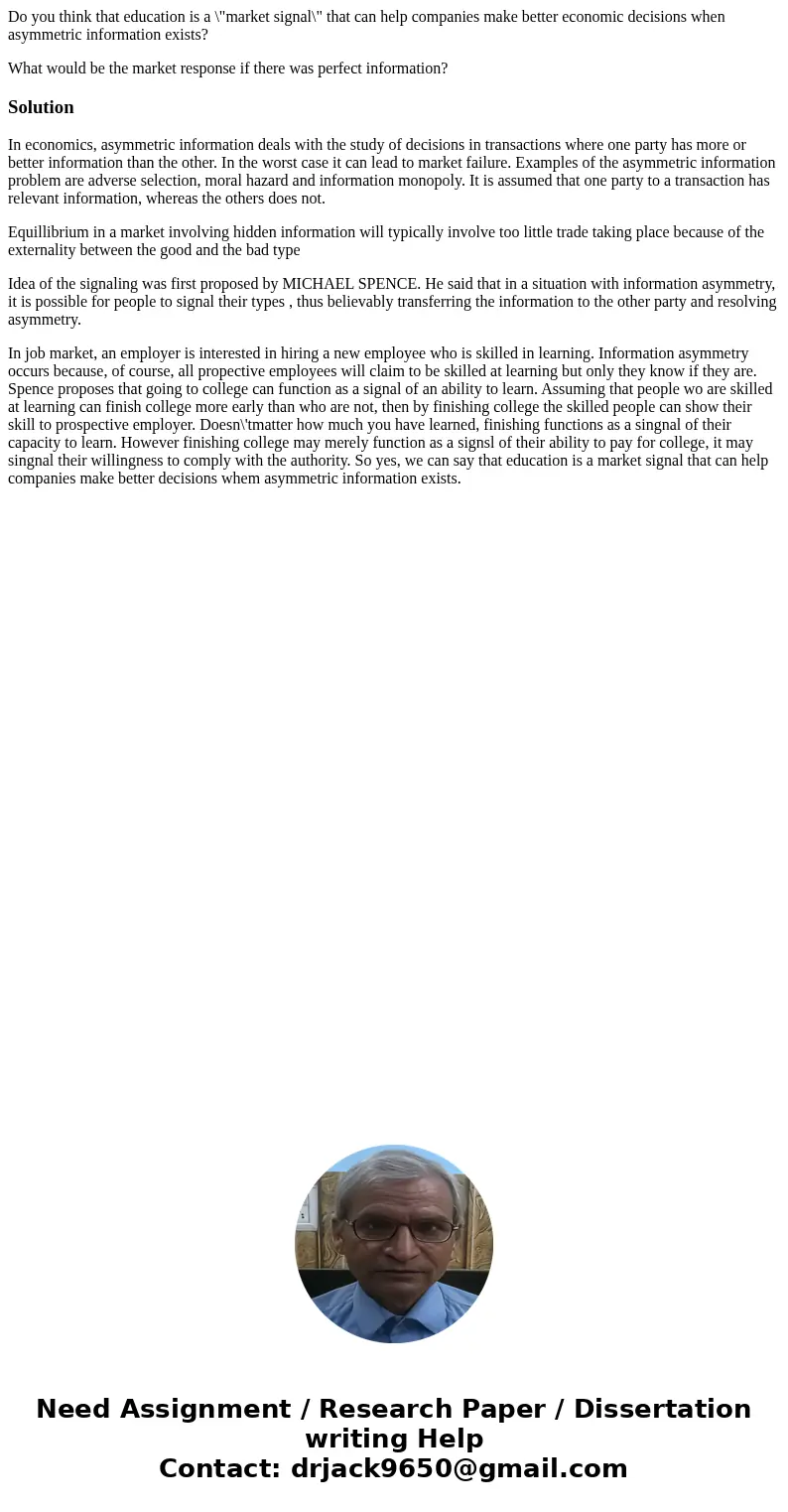Do you think that education is a market signal that can help
Do you think that education is a \"market signal\" that can help companies make better economic decisions when asymmetric information exists?
What would be the market response if there was perfect information?
Solution
In economics, asymmetric information deals with the study of decisions in transactions where one party has more or better information than the other. In the worst case it can lead to market failure. Examples of the asymmetric information problem are adverse selection, moral hazard and information monopoly. It is assumed that one party to a transaction has relevant information, whereas the others does not.
Equillibrium in a market involving hidden information will typically involve too little trade taking place because of the externality between the good and the bad type
Idea of the signaling was first proposed by MICHAEL SPENCE. He said that in a situation with information asymmetry, it is possible for people to signal their types , thus believably transferring the information to the other party and resolving asymmetry.
In job market, an employer is interested in hiring a new employee who is skilled in learning. Information asymmetry occurs because, of course, all propective employees will claim to be skilled at learning but only they know if they are. Spence proposes that going to college can function as a signal of an ability to learn. Assuming that people wo are skilled at learning can finish college more early than who are not, then by finishing college the skilled people can show their skill to prospective employer. Doesn\'tmatter how much you have learned, finishing functions as a singnal of their capacity to learn. However finishing college may merely function as a signsl of their ability to pay for college, it may singnal their willingness to comply with the authority. So yes, we can say that education is a market signal that can help companies make better decisions whem asymmetric information exists.

 Homework Sourse
Homework Sourse